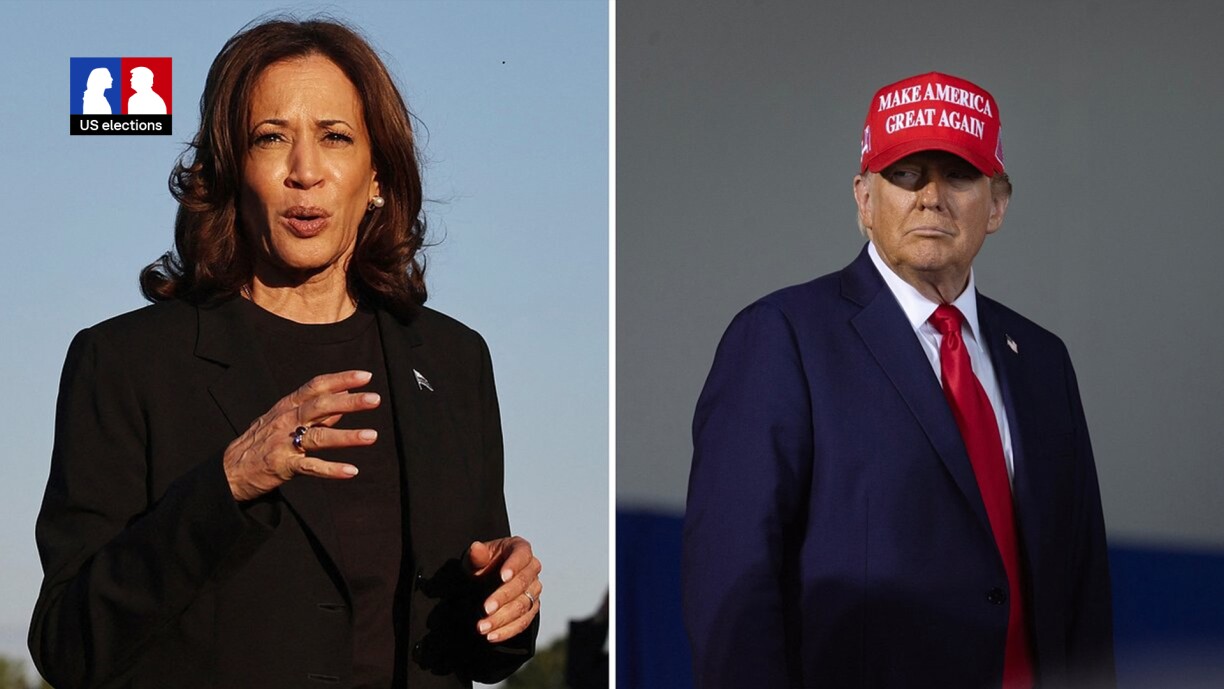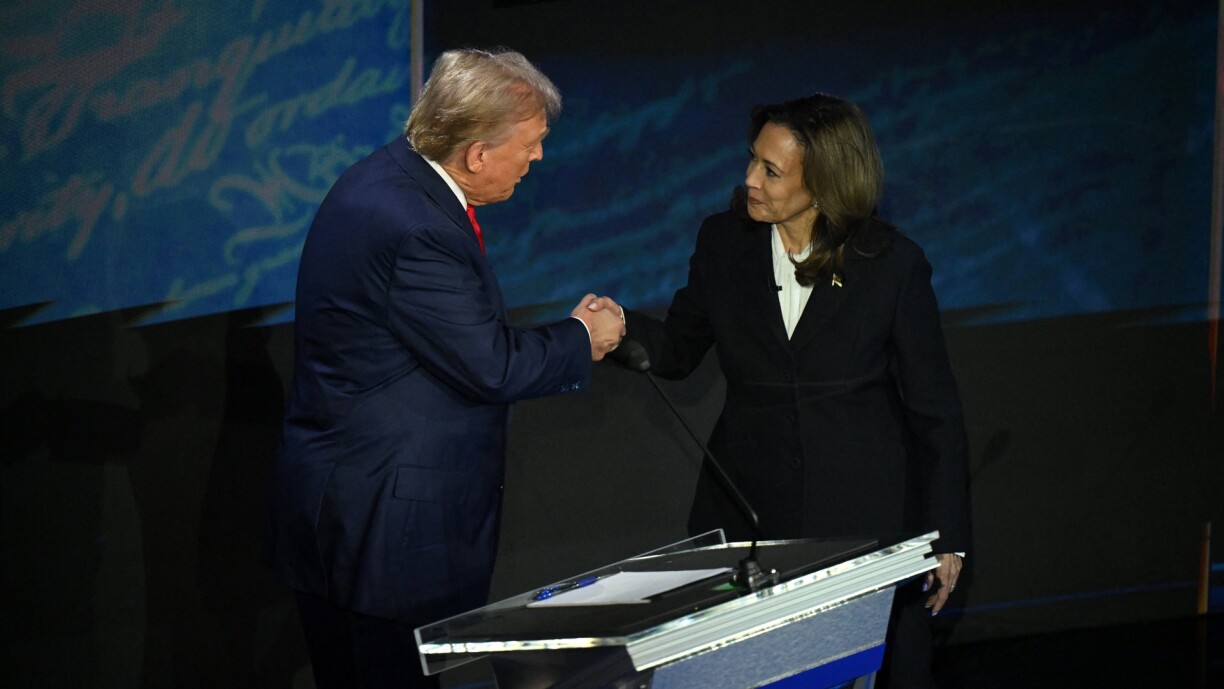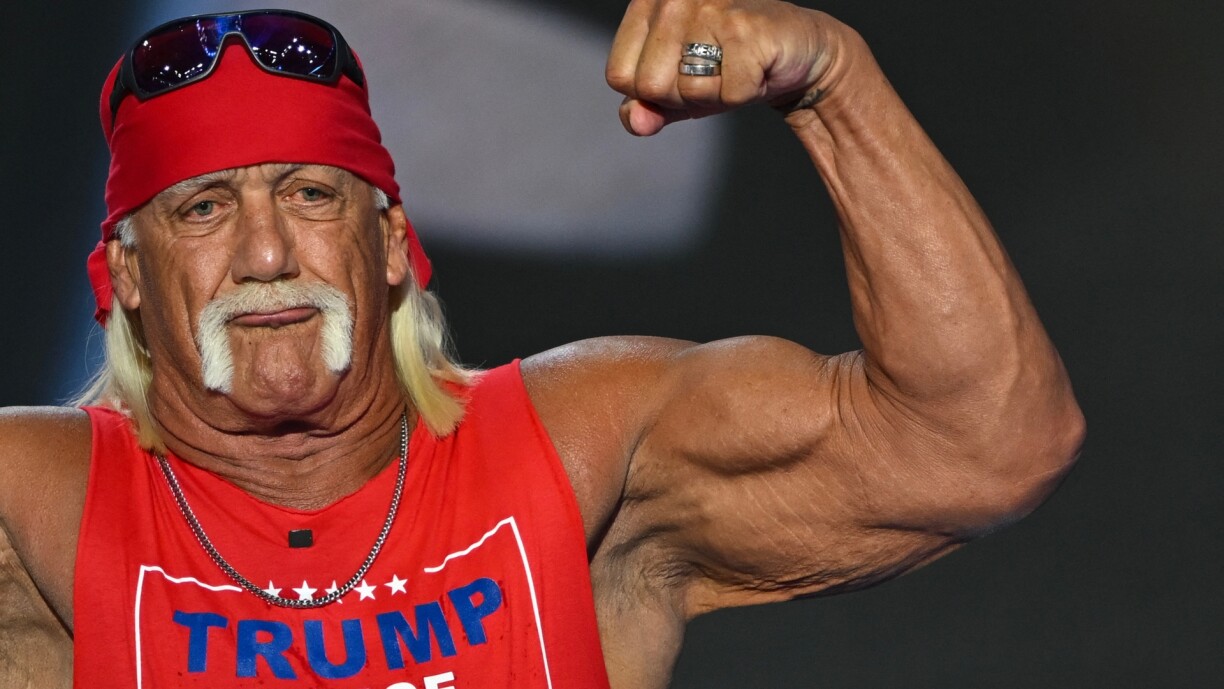
As the 2024 White House race intensifies, policies on the economy, immigration, abortion, and foreign affairs are emerging as defining issues that could sway voters in the days ahead. The fifth instalment in our explainer series delves into the contrasting platforms of Kamala Harris and Donald Trump as they vie for the nation’s highest office. With each candidate offering distinct approaches on these key topics, we explore how their stances reflect broader trends and ideological divides in the United States, outlining the core issues likely to shape the electorate’s choice come 5 November.
The number and variety of policies that could play an essential role in the 2024 White House race is probably as great as the US population itself. Nevertheless, four issues seem to dominate the national conversation as Harris and Trump are vying for the trust of the American people, so here we will focus exclusively on these most pressing concerns.
Under the banner ‘A New Way Forward’, Harris’ economic platform focuses on middle-class support through tax cuts for over 100 million Americans by restoring and expanding the Child Tax Credit and the Earned Income Tax Credit. She plans to invest heavily in small businesses by increasing the startup tax deduction and providing federal contract opportunities. Harris also promotes affordable housing by building 3 million new rental units and offering down payment assistance for first-time buyers. Additionally, she advocates lowering healthcare costs, particularly drug prices, and regulating price exploitation through the “first-ever federal ban on corporate price gouging on food and groceries”.
Trump’s economic policies – framed as the ‘Agenda 47' in reference to the number of the next US president – focus on lowering taxes, particularly by implementing large tax cuts for workers and eliminating taxes on tips. He aims to turn the US into a “Manufacturing Superpower of the World” by reducing outsourcing and providing incentives for domestic production. Trump’s energy policy seeks to make the US the dominant global energy producer by cutting regulations and expanding fossil fuel development: “We will DRILL, BABY, DRILL.” His plans also emphasise deregulation and creating an environment where businesses can thrive with minimal government intervention.
Harris advocates for comprehensive immigration reforms, balancing strong border security with pathways to citizenship for undocumented immigrants. She supports deploying advanced technology to detect illegal drugs like fentanyl and proposes adding more border agents. Harris repeatedly emphasises wanting to reform the “broken immigration system”, blaming Trump for killing a recent bipartisan reform bill for political gains. Harris further aims to provide an “earned pathway to citizenship” for immigrants, rejecting policies that separate families at the border.
Trump’s immigration plan focuses on strict border security and limiting illegal immigration. Central to his platform is rejecting the “Democrats’ Open Borders Policies” by completing the construction of the border wall and increasing the number of deportations, particularly through what he calls the largest deportation operation in US history. Trump also supports implementing tough penalties on illegal immigration, including crackdowns on human trafficking and drug smuggling.
Harris firmly supports reproductive rights and promises to codify Roe v Wade into law to ensure federal protection for abortion access. She emphasises trust in women to make decisions about their own bodies and vows to oppose any attempts to implement a national abortion ban. Her platform is centred on the ‘pro-choice policy', protecting the right to choose without government interference.
Trump, on the other hand, celebrates the overturn of Roe v Wade and takes credit for appointing the Supreme Court justices responsible for that decision. His platform suggests allowing states to decide abortion laws, many of which have introduced stricter restrictions since the landmark ruling was overturned. He opposes federal abortion protections and has advocated for ‘pro-life policies’ throughout his campaign.
Harris supports sustained US aid to Ukraine, reflecting her commitment to NATO and international alliances. Her campaign underscores the importance of countering Russian aggression as a stand against authoritarianism globally, aligning with Biden administration policies to supply Ukraine with military aid and economic support as part of a broader coalition response. Harris further upholds the US’ longstanding commitment to Israel, supporting its security while endorsing a two-state solution as part of a broader peace framework. Harris also vows to “always stand up for American interests in the face of China‘s threats”, prioritising the nation’s ability to outcompete its adversary to protect US interests.
Trump criticises extensive US involvement in Ukraine, calling for de-escalation to avoid “World War III”. He suggests reallocating resources toward domestic priorities, advocating for an approach that focuses on reducing US obligations abroad. Nevertheless, he has positioned himself as a staunch supporter of Israel, at times suggesting that the Biden administration is not doing enough for its ally in the Middle East and allowing Iran to expand its regional influence. He is also vocal about imposing tariffs on China to limit their investments, presenting a hardline stance aimed at curbing Chinese influence on US industries and technology.
Both Kamala Harris and Donald Trump have become somewhat notorious for ‘flip-flopping’ on several key positions that they once held.
Though Harris has not been president yet, she is generally associated with the track record of the Biden administration, which oftentimes stands in contrast with previous positions of hers. The most prominent example is her changed stance on fracking. Early in her political career, she was more supportive of policies against fracking, aligning with the environmentally focused left. However, as Biden’s vice president, she has taken a more moderate approach, supporting regulations without endorsing an outright ban on fracking. This shift aligns with the Biden administration’s attempt to balance environmental priorities with the energy demands of swing states, yet it has frustrated some progressive Democrats who feel her position compromises on climate goals.
Trump has his own term as US president to showcase, but he has also notably reversed past positions, especially on abortion. Before entering politics, he identified as pro choice, yet as a Republican candidate and then president, he adopted a pro-life stance. His administration appointed conservative Supreme Court justices who ultimately contributed to the reversal of Roe v Wade, satisfying his base but alienating some moderate Republicans.
These shifts have had a mixed impact on their respective voter bases. For Harris, changes in her stance on fracking have occasionally alienated progressives who demand stronger climate action. However, her alignment with Biden’s platform has helped her gain approval from moderate Democrats and independents in return. Trump’s reversals, especially on abortion, have helped him solidify his position with religious and conservative groups. Yet, his pivot away from earlier moderate views has pushed some independents and moderate Republicans away, especially those concerned about abortion access.

Presidential campaigns tend to rely heavily on donor support to finance their efforts of reaching and convincing voters. As of the latest filings in the 2024 presidential campaign (24 October), Kamala Harris and Donald Trump have both amassed substantial funding, although their sources and distribution reveal differing strategies and supporter bases.
Harris has raised around $1.3 billion through her campaign and affiliated groups, with a significant portion of her funding coming from large donations. Approximately 56% of her funds are from large contributions, while small individual donations account for about 44%, indicating robust grassroots support as well. Harris’ campaign has strong backing from prominent tech and entertainment industry figures, including Michael Bloomberg, Sheryl Sandberg, and LinkedIn co-founder Reid Hoffman.
Donald Trump, on the other hand, has also seen substantial support, raising around $980 million, particularly from wealthy conservatives and those in traditional sectors like real estate and finance. Trump has benefited heavily from PACs, with his Make America Great Again Inc. super PAC spending around $125 million to support his candidacy. His major backers include figures like Elon Musk, Miriam Adelson, and the Winklevoss twins, reflecting his appeal to established Republican donors and wealthy allies within conservative business circles.
Though celebrity endorsements are rarely seen as significantly influencing the outcome of a presidential election, they still help highlight the cultural environments associated with either candidate.
Kamala Harris has garnered endorsements from high-profile celebrities in music, film, and activism, typically those aligned with progressive and Democratic values. Notably, Taylor Swift endorsed Harris, praising her as a “steady-handed, gifted leader”. Oprah Winfrey, George Clooney, and Barbra Streisand are also vocal supporters, with each emphasising Harris’ stance on women’s rights, democratic values, and progressive policies. Musicians like Bruce Springsteen, John Legend, and Billie Eilish have used their platforms to rally support for Harris, often focusing on issues like climate change and reproductive rights, resonating strongly with younger and liberal audiences.

Donald Trump has attracted endorsements from figures in more conservative circles, especially those in entertainment and sports. This includes Elon Musk, who, despite some previous criticism of Trump, has supported him through significant donations and publicly. Other endorsements include UFC President Dana White, musician Kid Rock, and former wrestler Hulk Hogan, who praised Trump as a “hero” at the Republican National Convention. Trump’s celebrity supporters often align with his ‘America First’ message, focusing on traditional values, economic strength, and resilience.
